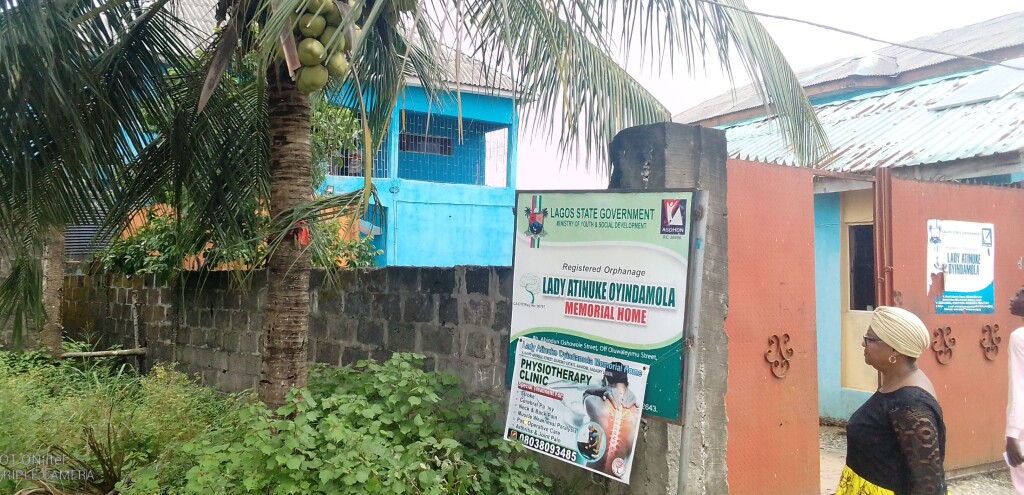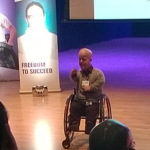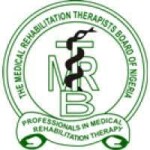Nigerians are falling into the crack between cerebral palsy and other disabilities, and the Discrimination Act just papers over the gap with blanket provisions
By Gideon Oladimeji
Being different and being alive mean a lot to Elsie Akerele and her 41 children at Lady Atinuke Memorial Foundation, along the Ojo-Badagry road, Lagos.
In that part of the state, culture didn’t look kindly on children like hers when she first moved there in the late 70s. She had her seventh son about then, and he turned out to have Down Syndrome, cerebral palsy, and autism. The revelation changed her life as a former civil servant and shipping entrepreneur.
But Dave, different from others, was okay by her. He still is.
“Here they believed this type of children are demons, and should be killed or returned,” she said.
The NHRC and some civil society organisations once decried the practice of drowning or starving to death children with cerebral palsy. Akerele’s decades of advocacy for children with intellectual and developmental disabilities has impacted that culture in that area.
Discrimination still persists, though. “When I take them to hospital, and demand quick attention, people say I work myself up on children that will never amount to anything for me,” she said.
She knows—because of their special needs; and their hopelessness as abandoned children. But they deserve to live as all humans do. That’s the philosophy driving her.
There are other mothers like her, in passion, belief, and commitment. They run more than half a dozen care homes across the state.
Nonye Nweke, the founder of the CP Centre, Ibeju Lekki, is another. Her home accommodates only 10 kids with CP—the spastic types, on level 5 of the Gross Motor Functions Classification (GMFC). Her own child also changed her life in no small way when she brought her from Imo 17 years ago.
There’s no official figures to confirm the population of such children in Nigeria. Some experts said 700, 000 of them live with CP. And over 3 million families carry the burden of caregiving. But the report of a study Bill & Melinda Gates Foundation sponsored which LANCET global edition published in 2018 put the figure of all Nigerian children with intellectual and developmental disabilities at 2.7 million. These include autism, Down Syndrome, CP, and epilepsy.
At Modupe Cole Memorial Home, Akoka, there is no mother figure. The Lagos government took it over from the founder years ago. Staffed with some government caregivers and more temporary workers, it houses scores of similar children on behalf of the state.
The state government hasn’t fared differently from the parents who abandon children with special needs. The home faces the same challenges Elsie, Nonye, and others face: health care delivery for CP children, and staffing.
Lagos has a Special People Law similar in spirit and letters to the Discrimination Act 2018. Both provide “free health services” for children with disabilities. ER however found out all the homes pay the medical bills of their children’s interventionist surgery, physiotherapy, and other specialist care in government hospitals.
For the Lady Atinuke Home and the CP Centre, the problem is complicated. The distance from Badagry to the neuro-psychiatric hospital Elsie takes her children could take many hours of driving. That was when the home used to have its own bus.
“We need a clinic here,” she told pressmen in the run up to her weeklong awareness campaign themed “It’s Okay to be Different” in November.
Nonye also complained of the distance and man hours it takes to drive the children twice a week to Mercy Hospital for physiotherapy.
Even the only care home the state runs is no exemption. Willoughby Babatunde, the national vice president of the Association of Intellectual and Developmental Disability of Nigeria (AIDDN) wondered how the disability law provisions will ever work. Not when the general health system is failing people with no disabilities, he insisted.
“The only thing the state government provides for the Modupe Cole is feeding,” he told ER. As the home PTA chairman, Babatunde is in the position to know. His daughter, 24, with Down Syndrome, is there. He also knows a child with such disability needs more than feeding as caregiving.
Most of the home founders emphasized the cost of maintaining their support staffs.
Elsie has 23 staffers, including caregivers and administrative officers, all depending on good wishes and alms they can rake in.
People have told her she is overreaching herself taking in so many kids, and having a large number of people to care for. At 72, she would admit some of that.
But her passion won’t let her turn back children whose parents bring as a result of her awareness campaign. More than 90 percent of them were abandoned during the covid-19 pandemic when the home still ran as a boarding facility. “We cannot even trace the parents again,” she said. There were those the state Juvenile Welfare Centre picked up where their parents dumped them. Without a support policy or consideration, the centre also sent some of these kids to Elsie. She wouldn’t reject them.
According to her, the children may not learn to become anything in life, but they have innate ability to know what others may not know.
“They know rejection,” she said.
For her, it’s a matter of choice: to reject the kids abandoned, or those who survive being put to sleep by their frustrated parents, and may die anyway; or accept them into her care where she struggles to keep them alive for as long as possible.
“We have lost three of them,” she said.
Nonye doesn’t bother so much about such expediency as much as she does about quality of life her children with CP live. “They deserve to live in dignity as humans,” she told ER.
But as expected, all the care homes and caregivers ER interviewed agreed CP, of all disabilities, exhausts resources, including time, money, and peace. It thus demands special attention from government.
US Congress is already processing the CP Research Program Authorization bill. If passed into law, the Act will grant special funding to CP management in the US.
A special law recognizing the peculiarity of CP can come to the rescue of such parents and caregivers in Nigeria.
Elsie and others believed it would be a great relief.
“But the government has so much to do it doesn’t have time to think well, and formulate good policies about disabilities,” Nonye said.







